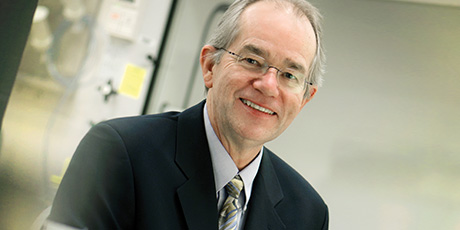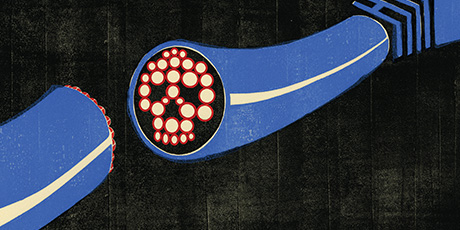Upgrade
Super Senses
Making ordinary sensors do the work of a supercomputer

Could a series of off-the-shelf sensors replace a supercomputer? Assistant Professor Ioannis Schizas thinks so and is developing the framework for a network that can do just that.
The electrical engineer received a three-year National Science Foundation grant to create a sensing environment that uses many simple, off-the-shelf devices to process data that currently requires the use of a supercomputer.
"Sensors can give us huge amounts of data, but using and applying the data they collect requires a very powerful computer. I hope to eliminate that need through simplicity of design," Dr. Schizas explains. "When there are many sensors, there is scalability and a robust system with no single point of failure. This is attractive because costs are fixed and there is a built-in backup for every part of the system."
For the project, Schizas will search for a way to ensure that the sensors sort the desired data and ignore the rest. By using optimization techniques to determine the best placement of sensors like thermometers, he hopes to prompt the devices to collaborate with each other.
"When humans are able to collect data from sensors remotely, it reduces expense and potential injuries or casualties. It also increases efficiency because problems can be detected early," says Khosrow Behbehani, professor and former dean of the College of Engineering. "Dr. Schizas' project has great potential to change the way sensors are used."
Illustration by Harry Campbell

















